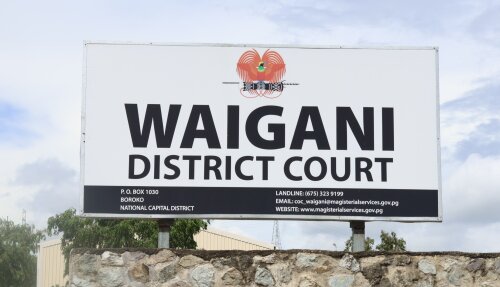Best Marriage Lawyers in Port Moresby
Share your needs with us, get contacted by law firms.
Free. Takes 2 min.
Free Guide to Hiring a Family Lawyer
List of the best lawyers in Port Moresby, Papua New Guinea
About Marriage Law in Port Moresby, Papua New Guinea:
In Port Moresby, Papua New Guinea, marriage is primarily governed by the Marriage Act of 1963. This Act outlines the legal requirements and procedures for getting married, including eligibility, marriage ceremonies, and registration. It is important to understand these laws to ensure a valid and legally recognized marriage.
Why You May Need a Lawyer:
While it is not necessary to have a lawyer for all aspects of marriage in Port Moresby, there are certain situations where legal assistance can be beneficial. Some common scenarios where you may need a lawyer include:
- Pre-nuptial agreements
- Dissolution of marriage (divorce)
- Child custody and support matters
- Property division
- Adoption
Local Laws Overview:
When it comes to marriage in Port Moresby, Papua New Guinea, there are a few key aspects of the local laws that are particularly relevant:
- Age Requirements: The legal age for marriage is 18 years old. However, individuals aged 16-18 can marry with parental consent.
- Marriage Ceremonies: Marriages must be conducted by an authorized marriage celebrant who will officiate the ceremony according to legal requirements.
- Registration: It is crucial to register your marriage within 14 days of the ceremony to make it legally recognized.
- Customary Marriages: Traditional or customary marriages may hold legal validity if certain requirements are met, such as payment of bride price and adherence to customary practices.
Frequently Asked Questions:
1. Is a marriage ceremony required to be legally married in Port Moresby, Papua New Guinea?
Yes, a marriage ceremony is required for a legal marriage. It must be conducted by an authorized marriage celebrant who will follow the legal procedures.
2. Can foreigners get married in Port Moresby, Papua New Guinea?
Yes, foreigners can get married in Port Moresby, Papua New Guinea. However, they may need to provide additional documentation, such as a Certificate of No Impediment (CNI) or a Single Status Certificate.
3. What are the grounds for divorce in Port Moresby, Papua New Guinea?
Some of the grounds for divorce in Port Moresby include adultery, cruelty, desertion, incurable insanity, and separation for at least five years.
4. How can I change my name after getting married?
After getting married, you can change your name by applying for a Change of Name Certificate through the relevant authorities. Once approved, you can update your identification documents.
5. Are pre-nuptial agreements legally recognized in Port Moresby, Papua New Guinea?
Yes, pre-nuptial agreements are legally recognized in Port Moresby, Papua New Guinea. However, they must be voluntarily entered into, fair, and not against public policy.
Additional Resources:
If you need legal advice or assistance regarding marriage in Port Moresby, Papua New Guinea, consider reaching out to the following resources:
- Family and Sexual Violence Action Committee (FSVAC)
- Legal Aid Commission
- Papua New Guinea Law Society
- Office of Civil Registry and Identity
Next Steps:
If you require legal assistance in marriage matters in Port Moresby, Papua New Guinea, follow these steps:
- Identify the specific issue or question related to marriage law.
- Research and gather relevant documentation and information.
- Contact a reputable lawyer specializing in family law or marriage matters for legal advice.
- Discuss your situation with the lawyer and provide them with all necessary details.
- Follow the lawyer's guidance and instructions regarding further steps or legal actions.
Lawzana helps you find the best lawyers and law firms in Port Moresby through a curated and pre-screened list of qualified legal professionals. Our platform offers rankings and detailed profiles of attorneys and law firms, allowing you to compare based on practice areas, including Marriage, experience, and client feedback.
Each profile includes a description of the firm's areas of practice, client reviews, team members and partners, year of establishment, spoken languages, office locations, contact information, social media presence, and any published articles or resources. Most firms on our platform speak English and are experienced in both local and international legal matters.
Get a quote from top-rated law firms in Port Moresby, Papua New Guinea — quickly, securely, and without unnecessary hassle.
Disclaimer:
The information provided on this page is for general informational purposes only and does not constitute legal advice. While we strive to ensure the accuracy and relevance of the content, legal information may change over time, and interpretations of the law can vary. You should always consult with a qualified legal professional for advice specific to your situation.
We disclaim all liability for actions taken or not taken based on the content of this page. If you believe any information is incorrect or outdated, please contact us, and we will review and update it where appropriate.










